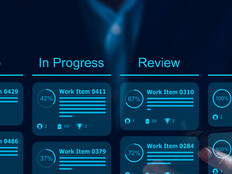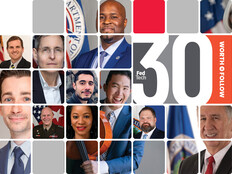How American citizens interact with government programs and services has a direct impact on their level of trust in the government itself, according to the latest iteration of the President’s Management Agenda, which presents President Joe Biden’s vision for the future of the federal government.
That’s why the administration is focusing on improving citizen satisfaction as one of the key tenets of the PMA, which has an overall goal to move toward an “equitable, effective and accountable government that delivers results for all.”
“Our current service delivery is not always designed with the public’s needs and priorities in mind,” the document states. “Whether during a pivotal life experience or a routine service interaction, we must deliver excellent customer experience, reduce barriers and improve understanding of an individual's situation to best help those in need of government assistance.”
As FedTech has reported, this is imperative for the Biden administration. A 2022 Pew Research Center study shows only 24 percent of the American public have trust in the federal government, a slight uptick from 21 percent in 2020 but still a near-historic low.
Click on the banner and become an Insider.
Government Lags Behind Private Sector in Satisfaction Rank
Data from the American Customer Satisfaction Index shows the federal government trailing behind other industries. According to an ACSI survey, citizen satisfaction dipped in 2020 by 4.4 percent over the previous year for a score of 65.1 out of 100, the lowest since 2015.
Respondents who identified as Republicans, Democrats and independents all reported their lowest satisfaction rates since 2018.
Of all federal departments evaluated by ACSI, the Department of the Treasury — home of the Internal Revenue Service — received the lowest marks.
77
On a scale of 100, citizen satisfaction with the Interior Department, the highest-ranked government agency in the American Customer Satisfaction Index
Source: American Customer Satisfaction Index
The PMA includes information on the administration’s plans to strengthen and empower the federal workforce and better manage the business of government. One key focus of the citizen satisfaction portion is on developing shared products, services and standards that provide more customer-friendly experiences across high-impact service providers.
In a December executive order, Biden said the paperwork burden imposed on the public by executive departments and agencies in recent years has represented more than 9 billion hours annually.
“Every interaction between the federal government and the public, whether it involves renewing a passport or calling for a status update on a farm loan application, should be seen as an opportunity for the government to save an individual’s time … and to deliver the level of service that the public expects and deserves,” the executive order states.
“We must use technology to modernize government and implement services that are simple to use, accessible, equitable, protective, transparent and responsive for all people of the United States.”
DIVE DEEPER: Learn about early attempts to improve citizen satisfaction with government.
Government Visions Depend on New Technology
In a blog post accompanying the executive order, Federal CIO Clare Martorana and U.S. Digital Service Administrator Mina Hsiang write that technology “is the connective tissue and a key ingredient in making this vision a reality.”
Their goals include modernizing governmentwide enterprise cyber technology and IT to bolster cybersecurity; securely connecting systems across agencies to work faster and more smoothly; and delivering a more modern, secure customer experience by updating design and technology.
The blog does not detail the technology that will be used to make this happen, but the writers note, “When we demonstrate that we can deliver modern services to our citizens, we will build greater trust in government’s capacity to deliver results.”
The PMA maintains that the federal government will collaborate across agencies to emphasize shared data, secure systems and seamless interactions on the back end, improving customers’ experiences on the front end.
“Where we are sharing data among agencies, we will do so responsibly, in consultation with civil rights groups and other stakeholders, securely and in a manner that protects privacy,” it states.
“We also will integrate customer experience measures and indicators of responsible data sharing into the government’s accountability and performance system to regularly track progress.”











